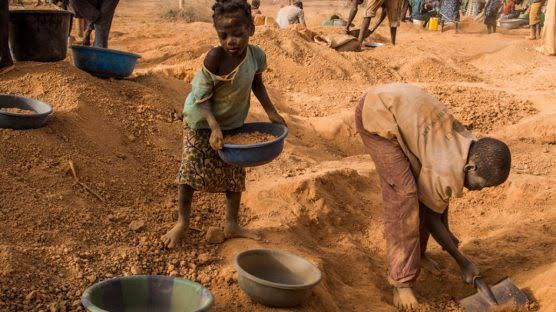Taking on Child Labor and Exploitation. The article delves into the severe issue of child exploitation and labor in Abuja, Nigeria, highlighting its severity, causes, and the need for ongoing efforts to safeguard children’s rights.
Comprehending Child Labor and Abuse
Taking on Child Labor and Exploitation. The term “child labor” describes the employment of minors in jobs that are damaging to their mental, physical, social, or moral development.
Exploitation in Abuja involves forced labor, maltreatment, and trafficking, denying children their youth, education, and opportunities for a brighter future.
Elements That Lead to Child Labor and Abuse
Lack of resources
In Abuja, poverty has a major role in the exploitation and labor of children. Many low-income households depend on the income of their children to survive.
Economic necessity often leads to children being forced into labor-intensive jobs at a young age, limiting their education and posing a threat.
Insufficient Education
The other important aspect is the absence of access to high-quality education. Children who do not attend school have a higher likelihood of entering the workforce.
Abuja faces educational challenges due to inadequate school infrastructure, high tuition fees, and sociocultural norms that restrict formal education, particularly for girls.
Inadequate legislation and implementation
Nigeria’s child labor and exploitation laws are poorly enforced due to factors like undertraining, resource scarcity, and corruption within law enforcement agencies.
This permits abusive behaviors to continue with few repercussions for those who engage in them.
Dealing with Child Labor and Abuse
To effectively combat child labor and exploitation in Abuja, a multifaceted strategy involving international assistance, community involvement, and government intervention is necessary.
Enhancing laws and their implementation
The legal system needs to be improved and enforced by providing the necessary resources, training, and modernizing legislation to align with international norms.
Violations can be successfully found and addressed with the use of routine inspections and monitoring.
Expanding educational access
In order to stop child labor, it is essential to guarantee that every child has access to a high-quality education.
Implementing school improvements, financial aid, and education promotion can help close the achievement gap and reduce abuse among underprivileged girls and women.
Poverty Reduction Initiatives
Implementing poverty reduction initiatives addresses child labor’s root causes, focusing on social safety nets, economic development, and sustainable family livelihoods.
Microfinance programs and vocational training can strengthen families and lessen the need for them to rely on child labor.
Awareness and Involvement in the Community
Increase societal awareness of child labor and exploitation through community-rooted programs that educate children, parents, and leaders about their rights and the importance of education.
Involving traditional leaders, religious institutions, and neighborhood organizations can help promote a team effort to address these problems.
Others Asked
What are Abuja’s primary causes of child labor?
Child labor in Abuja is primarily attributed to poverty, inadequate education, and lax labor regulations, with families often relying on their children’s income.
Furthermore, unequal legal frameworks and enforcement procedures permit the unchecked continuation of exploitative acts.
How can child labor be lessened in Nigeria?
Nigerian child labor reduction calls for an all-encompassing strategy that consists of:
- Strengthening regulations and enforcement: ensuring tight enforcement and updating child labor regulations to conform to international standards.
- Increasing access to education involves making financial contributions, investing in school facilities, and spreading the word about the importance of education.
- Implementing initiatives that foster economic growth, social safety nets, and sustainable livelihoods are ways to alleviate poverty.
- Community Engagement: educating local leaders and groups about the issue of child labor and enlisting their support.
In the fight against child labor, what role do NGOs play?
In the fight against child labor, non-governmental organizations (NGOs) are essential because they:
Advocacy:
Pushing for more robust laws and regulations to safeguard the rights of children.
Education and Awareness:
Educating communities about the risks associated with child labor through awareness campaigns and educational initiatives.
Support Services:
Offering children impacted by labor and exploitation support services such as housing, counseling, and legal aid.
Partnerships:
Working together to achieve comprehensive solutions with local communities, international organizations, and government agencies.
How can people help put an end to child labor?
People can help put an end to child labor by:
Increasing Awareness:
Teaching others and oneself about the problems associated with child labor and exploitation.
Giving time or money to groups that fight child labor is one way to support non-governmental organizations (NGOs).
Advocacy:
Pressuring governments to abide by stricter rules and regulations that safeguard children’s rights.
Ethical consumerism:
Making well-informed decisions by endorsing businesses that respect fair labor standards and refrain from using child labor.
Conclusion
Taking on Child Labor and Exploitation. Joint action is needed to combat child labor and exploitation in Abuja, addressing poverty, illiteracy, and lax law enforcement.
Collaboration between governments, communities, and organizations is crucial to ensuring every child has the opportunity to develop and prosper without labor.










